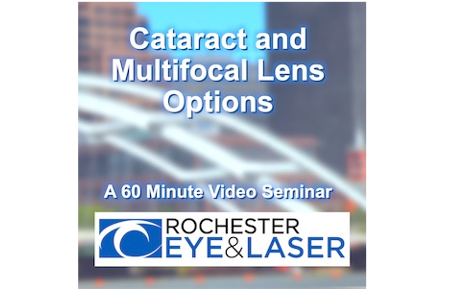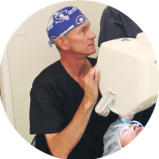Cataract Surgery Options in Rochester
In this video Kim Fullone, Former Director of Clinical Services, and Dr. Ken Lindahl explain Cataracts, Cataract Surgery, newer LASER cataract...


That's false! Cataracts are a natural part of the aging process. Over time, the lenses in our eyes simply become cloudy and obscure our vision.
2: How many cataract surgeries are performed in the U.S. each year?
A) More than 50,000
B) More than 200,000
C) More than 1.5 million
D) More than 3 million

In this video Kim Fullone, Former Director of Clinical Services, and Dr. Ken Lindahl explain Cataracts, Cataract Surgery, newer LASER cataract...

A cataract occurs when the natural lens in the eye -- which is normally clear -- becomes cloudy. This can distort your vision and make it...

One certainty in life is that everyone will eventually develop cataracts. In fact, cataract formation starts earlier than you might think,...